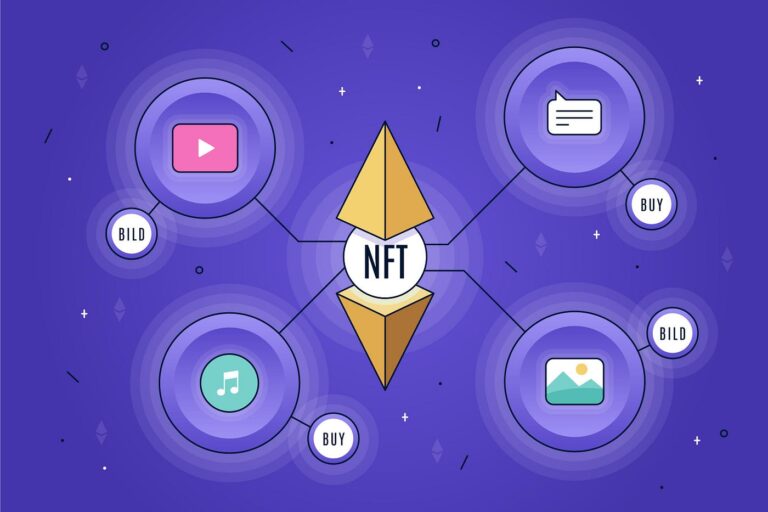In the dynamic world of digital art and collectibles, NFTs (Non-Fungible Tokens) have surged to prominence, bringing with them a new realm of tax considerations. This guide aims to demystify the tax obligations associated with NFT transactions, providing a clear path for compliance and informed decision-making for digital collectors and traders.
The Rise of NFTs and Their Tax Implications
The Emergence of NFTs in Digital and Art Worlds
Non-fungible tokens have revolutionized the digital and art worlds, offering a unique way to own, trade, and collect digital assets. From artwork and music to virtual real estate and beyond, NFTs have created a vibrant, diverse marketplace. However, with this innovation comes the need for understanding the new tax landscape that governs these digital assets.
Understanding Tax Implications for NFT Transactions
For collectors and traders, it’s essential to grasp the tax implications of NFT transactions. Unlike traditional assets, NFTs pose unique challenges for tax reporting due to their digital nature and the complexities of blockchain technology. Being well-informed about these tax requirements is crucial for compliance and successful participation in the NFT market.
Decoding NFT Taxes
The Basics of NFT Taxation
What Transactions are Taxable?
Almost all NFT transactions have tax implications. This includes the sale or exchange of NFTs, where the IRS views any profits as capital gains. Similarly, creating and selling NFTs can result in income, subject to income tax. It’s essential to understand these aspects to navigate NFT taxes effectively.
Reporting NFT Transactions in Tax Filings
Documenting and Reporting NFT Sales and Purchases
Proper documentation of all transactions involving NFTs is key. This includes keeping records of purchase prices, sales, dates, and any related expenses. When filing taxes, these records will help accurately report any capital gains or losses from NFT transactions.
Advanced Considerations in NFT Taxation
Handling Complex Tax Situations
NFT tax considerations can get complex, especially when dealing with high-value assets or frequent trading. In such cases, consulting with a tax professional knowledgeable in digital assets is advisable.
International NFT Taxation Nuances
Global Tax Considerations for NFT Transactions
For international collectors and traders, understanding the tax laws of different countries where NFT transactions occur is crucial. Different jurisdictions may have varying tax treatments for NFTs, and staying informed is vital to ensure global tax compliance.
NFT DAOs and Their Services
Introduction to NFT DAOs
NFT DAOs or Decentralized Autonomous Organizations focused on Non-Fungible Tokens, represent a fusion of blockchain’s governance models with the burgeoning world of digital collectibles and art. These organizations operate on principles of decentralization and collective decision-making, primarily dealing with NFTs. The members of an NFT DAO collaborate, vote, and make decisions about the acquisition, creation, or management of NFT assets.
Core Services of NFT DAOs
- Collective Investment and Acquisition: One of the primary services of NFT DAOs is pooling resources to invest in high-value NFTs. Members contribute funds, often in the form of cryptocurrencies, to collectively purchase, hold, and manage NFTs, which might otherwise be unattainable for individual investors.
- Curation and Exhibition: NFT DAOs often engage in curating collections of digital art or other NFT assets. They may organize virtual exhibitions or collaborate with galleries and online platforms to showcase their collections, providing exposure to both established and emerging digital artists.
- Governance and Voting on Asset Management: In an NFT DAO, decisions regarding the purchase, sale, or display of NFTs are typically made through a democratic voting process. Members may vote on various proposals, such as acquiring a new piece, selling parts of the collection, or collaborating with artists and platforms.
- Creation and Distribution of Original NFTs: Some NFT DAOs are involved in creating their own NFTs. This can involve commissioning works from artists or leveraging the talents within the DAO community to produce unique digital assets. The revenue generated from selling these NFTs can be distributed among members or reinvested into the DAO.
- Educational Resources and Community Building: Many NFT DAOs focus on educating their members and the broader public about NFTs and the digital art ecosystem. They may offer workshops, webinars, and resources, fostering a community around NFT appreciation and investment.
- Liquidity Provision and Financial Services: NFT DAOs can also provide financial services related to NFTs, such as fractional ownership models, which allow smaller investors to own a share of high-value NFTs. They may also create liquidity pools to facilitate easier trading of NFTs within their ecosystem.
Challenges and Considerations
- Legal and Regulatory Compliance: As with any organization dealing with cryptocurrencies and digital assets, NFT DAOs must navigate complex legal and regulatory environments. Ensuring compliance with laws related to digital assets, taxation, and securities is crucial.
- Operational Transparency: Given the decentralized nature of DAOs, maintaining operational transparency is essential for building trust within the community and with external stakeholders.
- Security of Digital Assets: Ensuring the security of NFT assets held or managed by the DAO is paramount, given the risks associated with hacking and fraud in the digital space.
Key Takeaways and Future Outlook
Emphasizing Compliance and Staying Informed
The most important takeaway is the need for compliance with tax laws when dealing with NFTs. As the NFT market evolves, so too will the tax regulations that govern it. Staying updated on these changes is crucial for anyone involved in the NFT space.
Looking Ahead in the NFT Tax Landscape
The landscape of NFT taxation is continually evolving. As governments and regulatory bodies adapt to the growing prominence of digital assets, we can expect more clarity and specific guidelines. For digital collectors and traders, staying informed and adaptable is key to navigating this shifting terrain successfully.

